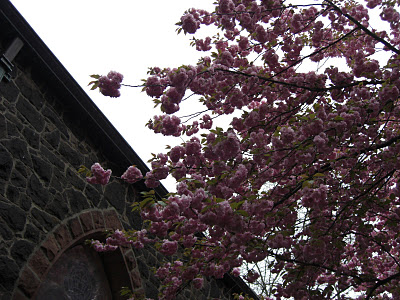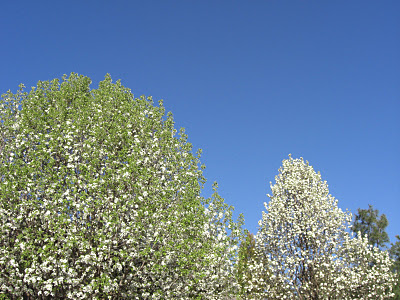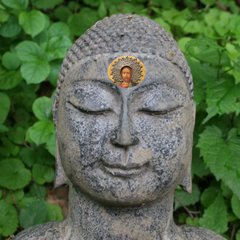Today's post is a bit of a smorgasbord, but there have been a number of impressions that are relevant, and I would like to put them all down in one day within the context of each other.
Almost all of us who are in spiritual disciplines know that there is a great deal of new material arriving, many works available, and a great deal of mixing of works going on. The whole New Age movement is essentially a mixing of work.
Personally, I feel rather cautious about it. Take a look at the background.
The 20th century produced an endless number of theoreticians on the horizontal level who changed the way we handle imports, economies, politics, and so on, undoing several thousand years of traditional experience in the process. We ended up, instead, with the WTO and Marxism. Now, you might say that global capitalism and Marxism don't have much in common, but they do share one major feature. They are both stupidly insensitive, and make their way forward by sacrificing human beings and their values on an altar of ideas and money.
Gurdjieff referred to the new breed of theoreticians collectively as "learned beings of new formation." This was a polite way of explaining that they were smart young souls, acting like idiots.
Countless damaging forces arrived on the scene as a result of the theorizers, and they are still very much at work. I don't see much difference with the New Age movement. Most of the people mixing works exude charisma and authority, but aren't really clear about anything.
If there is one thing I am sure of by now, it is that Gurdjieff was quite certain of some things, and that he was right about almost all of them. At least as far as I have been able to verify.
I know that there are some who will ask here that Jeanne DeSalzmann changed the Gurdjieff work, wasn't that mixing? I think we can definitively say that it wasn't. When someone who is conscious changes a work, they know why they are doing it.
This leads us to the question of how appropriate it is for Gurdjieff students to mix other works into their work. It was, of course, strictly forbidden by Gurdjieff. He explained to Ouspensky that the commandment "thou shalt not commit adultery" was in fact a direction not to mix works.
Consequently, we are now in an era where some reactionaries wish to seek a "pure" Gurdjieff work. There are others who feel the work should be more open and mixed with other works.
All of this needs to be examined in the context of one specific thought: the Gurdjieff work has a specific aim, and within the context of that aim, it can produce objective results.
What are objective results? They are results that will be consistent. Gurdjieff pointed out that there are all kinds of work that produce all kinds of results, but they are erratic and unpredictable. And many of us have heard about the existence of so called "bad results."
I have so many friends who are in different works, or who are mixing their works up, sometimes aggressively. I have been pondering this this morning, and I see that the requirement for me is to respect their work. I may not agree with it -- in many cases, I certainly don't -- but I need to learn to respect the individual and the work they are doing. If I meet people who share my personal aim, and they ask me for help, I will give it to them. If I meet people who have things from their work which appear to inform mine, I may incorporate them. I must, however, remember that my own teacher brought me into this work with the specific admonition not to mix works.
We can study all we wish, but we must adhere to the tenets of the work we are in.
This does not mean being inflexible or stupid about it; it simply means recognizing where we are in a work, and how much we might dare change it. If the master chef sends you to the supermarket with instructions to buy a specific set of ingredients to make a dish, but, when you get to the supermarket, you start loading your cart up with all kinds of other attractive foods, the recipe you end up making may not be what the chef told you it was possible to make.
So if we want to obtain the results that Gurdjieff -- who brought us a conscious work -- intended for us to receive, we may try to be a little creative with the recipe, but we must adhere to its basic ingredients.
Another thing that I have been pondering. This is from yesterday's sitting.
I spend so much of my time trying to be. What I need to do, instead, is to allow being.
Following on the heels of that, today, within another active experience, I saw it as follows:
The entire edifice that we construct within us which is made from words is useless. The active engagement is a living creature, not a set of words.
To stand between the inner and the outer state is not about having words.
It is not about silence either.
There is a wordless place that has no silence in it. Can we find that place? It takes an active effort.
May your roots find water, and your leaves know sun.









